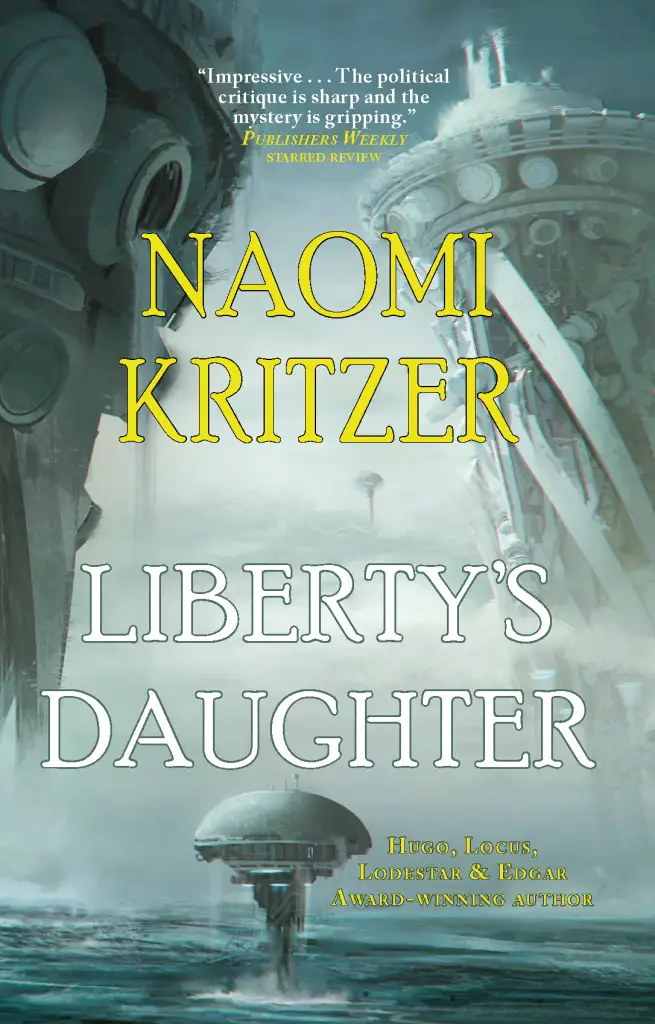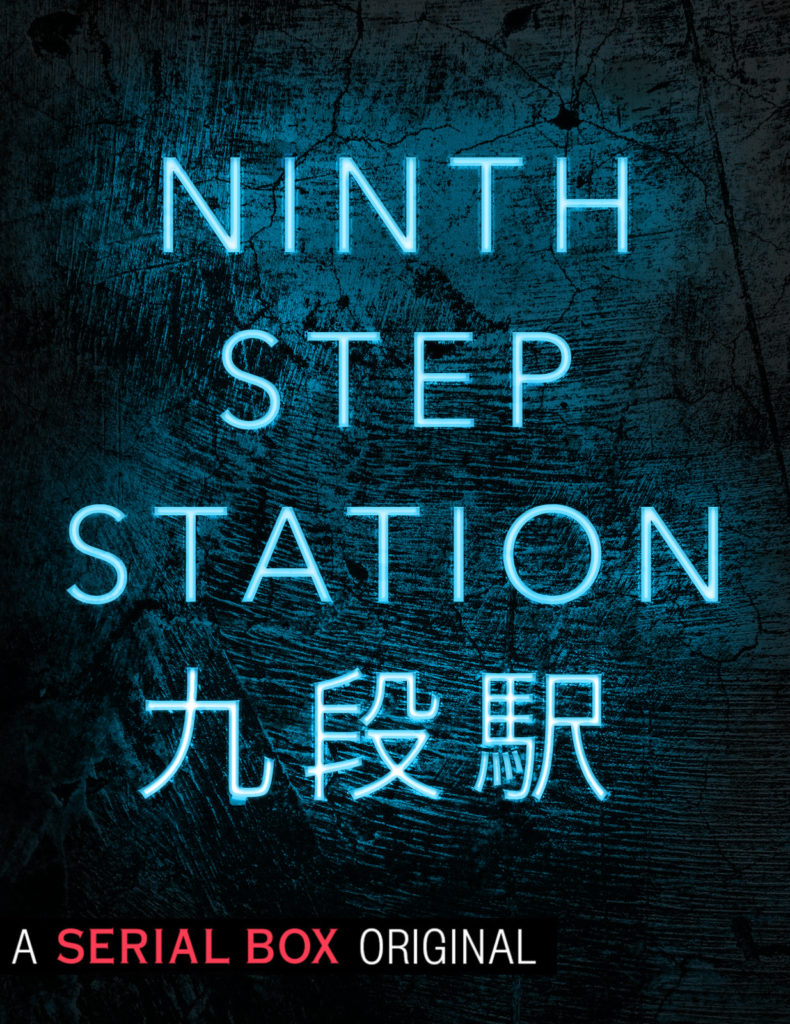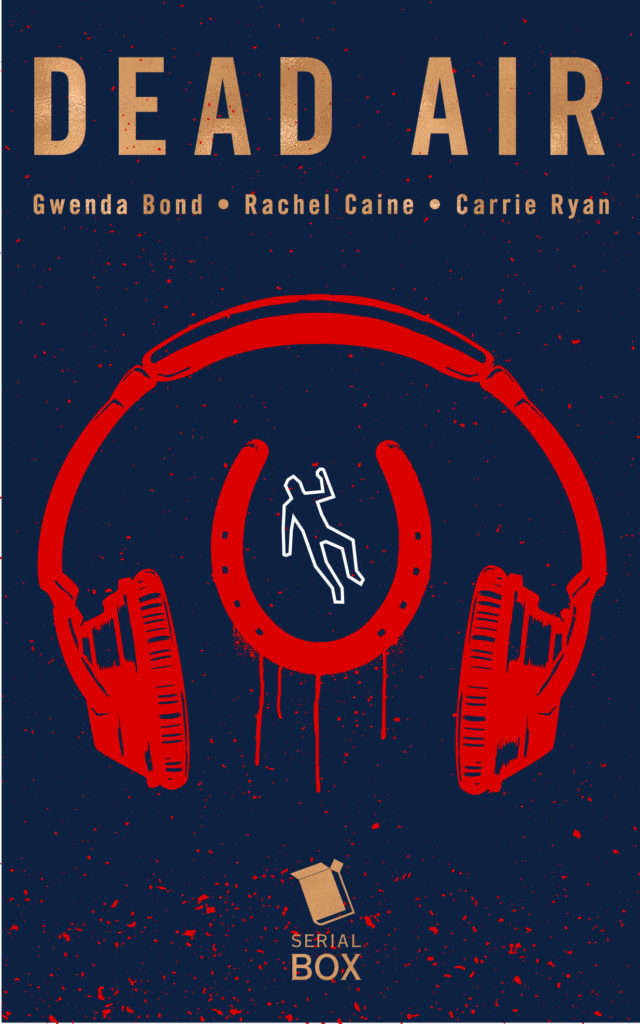Liberty’s Daughter and Thoughts on Worker Bees

Content Warnings: Plot spoilers (after a further warning) for Liberty’s Daughter by Naomi Kritzer and A Deepness in the Sky by Vernor Vinge, and exploitation discussion. Continuing my 2024 Hugo Awards Finalists reading, I gobbled up Liberty’s Daughter by Naomi Kritzer in one sitting. This was my first book in the Lodestar Award for Best Young Adult Book category, so I can’t rank it yet, but I certainly found it age-appropriate, entertaining, and thought-provoking. Some of those thoughts relate to other books, and some relate to current topics. In Liberty’s Daughter, Beck Garrison lives a fairly privileged life on a “seastead” where people have connected floating platforms and actual ships to form a network of communities independent of normal, landlocked countries. All of them are fairly libertarian, and one site recognizes no laws at all. That hasn’t been a problem for Beck before the beginning of this book, because she’s the daughter of an important man. However, when she starts helping a debt slave to track down a missing sister, she stumbles into trouble. With the help of a friend and various other people, she exposes some horrible things that have been happening out of public view. Her moral stands not only have strongly negative personal consequences, at least in the short term, but roil her entire society. I like Beck a lot more than some YA protagonists I’ve encountered. Her father calls her stubborn and selfish, but really, she’s smart, active, persistent, and brave. She’s naive at first, but knows a lot about how her society works, on the surface at least, and how to persuade people to do things and cooperate with each other. She can be too impulsive for her own safety, but partly that’s because she believes in doing what’s right and helping other people. Some people may think that things work out a little too easily for her, but to me, it’s not too surprising that her natural leadership, abilities to figure things out and get things done, and good heart are recognized by others. And anyway, things don’t go her way all the time. Liking Beck is a large part of why I like this book, but I also like how social issues are explored. I’d mentioned a debt slave. Most of the grunt labor in this collective is done by “bond workers” who are sort of a combination of indentured servants and company-store workers, usually going gradually deeper in debt rather than working their way out, and health issues can make that decline a lot sharper and faster. Revelations about what happened to the missing sister, who’s a bond worker herself, lead to some collective actions. MAJOR SPOILERS FOLLOW! Beck helps to avert a violent reaction from the bosses, but just as things seem to be calming down, a wave of sickness with symptoms of obsessive behavior sweeps over the seastead. Eventually, Beck and her allies discover that the epidemic is an engineered virus that got out of control – a virus that was supposed to turn discontented bond slaves into happy workers. But the so-called “worker-bee” virus works TOO well in this respect, even from the view of the bosses; as it brings unanticipated side effects, the ensuing societal breakdown leads to more illnesses and other problems. This reminded me strongly of the Focused workers in A Deepness in the Sky, by Vernor Vinge. That’s a really great book where a whole lot is going on, but the relevant bit is that one faction uses a technology-activated virus to attack enemies or turn some of their own people into brilliant super-specialists who only care about their projects, so they can make even more scientific advances (and are thus highly unlikely to examine society and their place in it). Some workers manage to realize this and think past their induced condition, and even to start thinking about rebellion, but usually they get caught and are reset to “happy” worker-bee status by an MRI-like procedure. The streaming series Severance (2022) approaches this from a slightly different angle. I haven’t watched it, since I don’t have Apple TV+, but I understand that workers at a fictional company agree to a procedure that severs their work memories and personal memories, which supposedly helps them concentrate more efficiently at work. Naturally, this leads to exploitation. The show won critical acclaim and a lot of buzz, and a second season is planned. When I was seeing ads for that show, I was reminded of a horrific series of advertisements some years ago where people had TVs/computer monitors instead of heads (like Prince Robot’s people in Saga), so you could see that even when they were off work, going about their daily lives, playing tennis or whatever, they were still thinking about work. This was supposed to show how dedicated the company’s employees were to serving the viewers, the implied customers, but to me and some friends, it exemplified expectations of depersonalization and exploitation of workers. It seems that a growing number of science fiction creatives are thinking about this trend. In the past, fears have been expressed of work-focused robots replacing humans (or human worker classes being bred and later genetically designed, from Aldous Huxley’s Brave New World to C.J. Cherryh’s Cyteen and beyond); more recently, the trend in fiction has been of taking humans themselves and just cutting out the parts that don’t directly serve capitalism, making individual lives far less rich and rewarding, and damaging the creativity, diverse thinking, and even the problem-solving skills of all humanity. These days, of course, that implied desirability of always concentrating on work is far closer to reality. Even without worker-bee drugs or Focused/Severance-type modifications, increasing numbers of jobs include the expectation that employees will be available 24/7 by text and email, and on-call for just-in-time scheduling even for ordinary, non-emergency shift work. Other societal trends are also keep people’s minds mostly on work and away from volunteerism (numbers are way down) and activism. Whether that’s more or less
Book Review: Ninth Step Station

Ninth Step Station is an excellent collaborative effort which entertains and asks hard questions about crime, investigation, surveillance, and the future of technology in a well imagined near future setting. The locale is Tokyo in the 2030s. After an attack by China on Japan, much of Japan is under Chinese occupation, and half of Tokyo is held by them as well, with a border zone between occupied Japan and free Japan managed by ASEAN, led by the United States. Tensions are high in this divided Tokyo of the future. The peace seems fragile and ready to erupt at any moment, forces scheme to survive and thrive, and the day to day life of people on both sides of the divide is under constant stress.
Guest Post: Tremontaine: Ending the Story By Racheline Maltese

Tremontaine, a serial fiction project set in the world of Ellen Kushner’s Swordspoint, is coming to the end. Racheline Maltese of the Tremontaine Creative Team gives her thoughts and reflections. After four seasons, Tremontaine, a serial fiction project set in the world of Ellen Kushner’s Swordspoint, is coming to the end. As someone who has worked on it since the beginning, since before it was even definitely a real thing, this is filled with feelings both of sadness and success.
Guest Post: Finding the Dark by Rachel Caine

Today on Skiffy and Fanty, Rachel Caine, part of the Dead Air team, a podcast/serial story collaboration she is doing with Gwenda Bond and Carrie Ryan, tells us about finding the darknes in thrillers and what her new project has to offer. I started reading my dad’s books when I was, well, old enough to figure out where he kept them, which was way too young. Some of them were what would be euphemistically called “men’s adventure” today; James Bond-type books, only with more sex and violence. Some were horror. But I most remember the opening of one of Ed McBain’s 87th Precinct novels … a book about a murderer backing a woman into a corner in her apartment, and relentlessly slashing back and forth at her like a sideways pendulum. It haunted me. I couldn’t get it out of my head, no matter how much fun space exploration science fiction I read, or high fantasy, or historical novels (all of which I loved).

